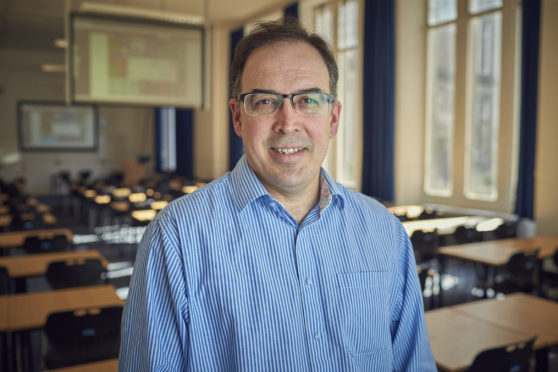Scotland’s footballers need to hit the books if they want to take their performances to the next level, according to new research carried out by Abertay University.
After another humbling week for the national team, Professor David Lavallee has discovered encouraging sportsmen and women to have outside interests can help them enjoy longer and more successful careers.
Juventus and Italy defender Giorgio Chiellini has spoken about how studying for a Master’s Degree in Business made him a better footballer and Professor Lavallee’s research has backed the claim.
Professor Lavallee tracked 632 players in Australia’s National Rugby League over three years and found those who were actively preparing for their transition to a new career after retiring from sport were more likely to be selected for matches and have longer careers.
He said: “This is the first study in the world that has actually proved this link.”
Professor Lavallee said he expects more football clubs to encourage players to think about their post-playing futures.
He said: “This is where the performance gains will be seen within sport in the next 20 years.
“It will be in the wellbeing and in the welfare area and I don’t think they will be marginal gains. I think it will be much more significant than marginal gains.”
Chiellini, 35 and still playing for Italy’s national team and league champions Juventus, said studying for his degree last year made him sharper on the pitch and helped reduce the pressure he felt before Serie A and Champions League Games.
Dutch cycling champion Iris Slappendel also said studying for her design degree helped her sports career.
Former Aston Villa and St Johnstone goalkeeper Peter Enckleman, who now works for courier company DHL, said: “There’s kind of a dressing room mentality. From 17 to 36, you just don’t think about the future.”
“As soon as you’ve got football (as a career) in the UK. You forget everything, education goes out of the window.”
Players’ union FIFPRO is running a new campaign called Mind the Gap to encourage athletes to think about preparing for new careers. The campaign is co-funded by the European Union’s Erasmus+ programme.










